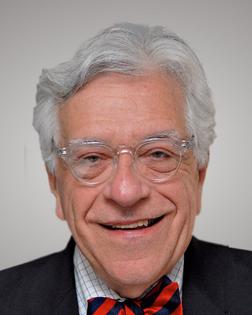The God Squad: The hidden God
Q: What theological system says that "God is only 'transcendent' far off and aloof, uncaring? What is the trait that human beings have that leads them to ask big questions like “Who is God?” or “What is man?” or “What is the meaning of life?” Do all these questions belong to some specific field of study? (From M)
A: Thank you, dear M, for your great questions about questions. I also wonder whether, beyond the daunting tasks of survival, animals think about the meaning of their lives. I think so, and here is my argument:
Dogs understand love,
Love is the meaning of life.
Therefore,
Dogs understand the meaning of life.
Well, perhaps dogs don’t know Latin. Humans, on the other hand, are born with two unique traits that compel us to ask the big questions about life: curiosity and awe. That is how God made us and those traits can lead us to God.
This thinking is called theology if it leads to God, metaphysics if it does not. Aristotle was the first thinker to imagine that there was a god but that this god was completely transcendent and removed from any involvement with the daily life and needs of human beings. For Aristotle, God was above 10 spheres that encircled the earth and was only responsible for getting the spheres to rotate. God for Aristotle was just an “Unmoved Mover” or “Thought thinking itself.” (in Greek: noesis noeosis). God’s purpose is to start the great engine of the universe, and then just let it run by itself.
Aristotle needed to reject the Bible’s belief in a God who is engaged with people and who directs history because for him change is impossible for a perfect being. Change for him was a defect and the biblical God changes often. God famously regrets making people, “And it repented the Lord that he had made man on the earth, and it grieved him at his heart. And the Lord said, I will destroy man whom I have created from the face of the earth; both man, and beast, and the creeping thing, and the fowls of the air; for it repenteth me that I have made them.” (Genesis 6:6-7, and see also Exodus 32:14 and Amos 7:3). There are, however, verses that say that God does not change,
Malachi 3:6: “For I, the Lord, do not change; therefore you, O sons of Jacob, are not consumed.” 1 Samuel 15:29: “Also the Glory of Israel will not lie or change His mind; for He is not a man that He should change His mind.” Resolving this deep question of divine mutability is simply above my pay grade.
For Aristotle, change in deity was not possible because change implies a defect and a perfect being has no defects. Perfection and change cannot coexist. What this meant for Aristotle is that a perfect being like God could not have any contact with imperfect humans. Aristotle’s remote and removed god had a major impact on Judaism, Christianity and Islam whose medieval theologians tried mightily to harmonize biblical theology with Aristotle’s idea of perfection.
Even today the idea of a completely transcendent God is very appealing to many people who find it difficult or impossible to fit God into history (Why is there evil, if God is good?) or their personal lives (Why did my innocent child die?). Such a deus absconditus allows them to believe in God while also keeping God from bearing the burden of evil in the world. The other advantage for those who want to keep God away from the world is that it solves the problem of religious sectarianism. If God could not care less what we do here on planet earth, then all the religious differences we live with are purely human creations meant to divide us. Finally, a remote God solves the problem of petitionary prayers. If God is removed from us, God cannot hear us. Prayers of petition are useless or perhaps even foolish. You tell me. Do you prefer to believe in a remote or an indwelling God?
People who still believe in a remote god are called deists. Thomas Jefferson was a deist. The reason I am not a deist is that I believe perfection and change are compatible. God is perfect but God gave us free will which means that what we freely choose to do is unknown to God until we choose it. God then adjusts to our use or misuse of free will. To me the granting of human free will is proof of God’s perfection because without it we would be less-perfect beings. Our freedom allows us to contemplate our existence and make our lives better and more loving. For me, God’s decision to engage with us is the great mystery and the great blessing of faith.
(Send ALL QUESTIONS AND COMMENTS to The God Squad via email at godsquadquestion@aol.com. Rabbi Gellman is the author of several books, including “Religion for Dummies,” co-written with Fr. Tom Hartman.)
©2021 The God Squad. Distributed by Tribune Content Agency, LLC.
(c) 2021 THE GOD SQUAD DISTRIBUTED BY TRIBUNE MEDIA SERVICES, INC.










